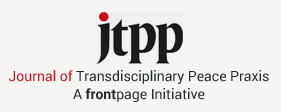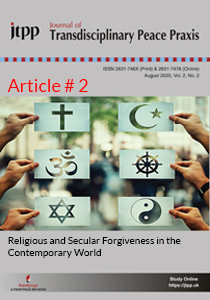Description
Religious and Secular Forgiveness in the Contemporary World
Wim Laven (Instructor of peace studies, political science, and conflict resolution)
Transdisciplinary discussion of forgiveness addresses a range of timeless and practical questions. Philosophical discussion on interpersonal forgiveness relates to ethical understandings and the moral dimension of giving or receiving forgiveness but can miss qualities of personal, political and spiritual importance. Psychology aids the metaphysical discussion of forgiveness by dealing with different understandings of the emotional and cognitive components of forgiveness. Academics, however, tend to care more about whether or not people should forgive, and what, and to what degree, they feel when they forgive.
This paper argues for a different metaphysical understanding of forgiveness in terms of transactions presented by the interdisciplinary fields of conflict management, resolution and transformation. This examination presents forgiveness in a novel way, by defining forgiveness in relational terms by focusing on managing relationships and in response to conflicts. Forgiveness can relate to opportunity, resistance, and resilience in relationships that can be benefitted through intervention and third parties. Unforgiveness, on the other hand, can relate to dysfunction and vulnerability.
The model offered helps to examine what happens when parties with different understandings of forgiveness experience moral dimensions in conflicts engage in apologies and forgiveness and/or whether or not their processes may succeed. It presents the role of religion as a resource, and looks at differences between religious and secular practices. In the last analysis, forgiveness may be more functional and practical than ethical theories of forgiveness present.





